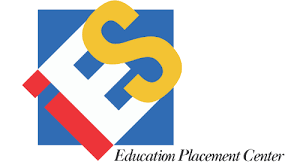Study in Republic of Ireland
Higher Education in Republic of Ireland
Higher education in the Republic of Ireland includes all education after second-level, encompassing higher education in universities and colleges and further education on Post Leaving Certificate (PLC) and other courses. The degree-awarding authorities approved by the Government of Ireland, which can grant awards at all academic levels, are University of Dublin, National University of Ireland (Cork, Dublin, Galwayand Maynooth), Royal College of Surgeons in Ireland, Dublin City University, Dublin Institute of Technology, Higher Education and Training Awards Council, St. Patrick’s College, Maynooth (Pontifical University), and University of Limerick. The King’s Inns of Dublin has a limited role in education specialising in the preparation of candidates for the degree of barrister-at-law to practice as barristers. Medical schools in Ireland also have particular regulation. There were seven establishments of higher education within the Republic of Ireland ranked among the top 500 universities worldwide by the Times Higher Education Supplement in 2008.
Institutions
Some colleges are “constituent” or “linked” colleges of universities, while others are designated institutions of the Higher Education and Training Awards Council. The latter include the Institutes of Technology, Colleges of Education, and other independent colleges. Some colleges have “delegated authority” from the Higher Education and Training Awards Council, this allows them to confer and validate awards in their own name.
Some institutions such as the University of Limerick, Dublin Institute of Technology and Dublin City University (DCU) have completed a process of modularising their courses (others are still in a transition phase), mostly using the ECTS. The Bologna process and applied research are the current concerns of national educational policy, additional concerns include the structures of the National University of Irelandand Trinity College, Dublin. Since the mid-2000s, a number of Institutes of Technology have applied for university designation, including Dublin Institute of Technology, Cork and Waterford.
The Marks & Standards document, offered by most institutions, can be consulted for information on the range and criteria set down for awards, while programme specifications offer additional information. In contrast to practice in the rest of the education system, entry tends to be highly competitive for school leavers; the so-called “Points Race“. In 2001 the percentage of school leavers transferring to third level exceeded 50% for the first time, as of 2005 it is in excess of 55% and expected to grow at approximately 1% per annum for the next decade.
There are over 25 third-level courses at graduate and postgraduate level offered through the Irish language. Acadamh na hOllscolaíochta Gaeilge is the Irish language Department of the National
University of Ireland, Galway (NUI Galway) and it has different off-campus centres throughout the Gaeltacht regions. Dublin City University has an Irish language department called Fiontar, University College Dublin (UCD), Dublin Institute of Technology and Galway-Mayo Institute of Technology (GMIT) also offer similar courses.
All but two of the seven universities in the Republic of Ireland offer “open” (omnibus entry) Bachelor of Artsdegrees through the CAO where the student can choose their specialisation after their first year of study. The two universities that do not offer “open” (omnibus entry) arts degrees, (Trinity College, Dublin and Dublin City University) do still offer Bachelor of Arts degrees in specific areas of study such as Drama Studies, Journalism, Latin, History, Japanese and International Relations.
In one, Trinity College, Dublin, the applicants wishing to read an Arts degree may apply to the college to read a combination of two subjects, such as French and Philosophy – which the student may continue to read jointly or with focus on one. Dublin City University‘s de facto omnibus entry arts degree is offered by St. Patrick’s College of Education (a college of DCU) and is titled “BA in Humanities“, All Hallows College (a college of DCU) offer BA in Humanities, Theology Pastoral Care, and English.
Entry into Higher education institutions is normally done through the CAO or Central Applications Office. In this way, students wishing to enter university apply to the CAO rather than the individual university. Places in courses are usually awarded based on results in the Leaving Certificate Examination or any international equivalent. Each university has a minimum entry requirement, usually requiring a pass grade in either English or Irish, as well as maths. Some also require a pass grade in a modern continental European language (French, German, Spanish or Italian). Each individual course has further entry requirements, for example, science courses usually require a certain grade in one or two sciences. The student must also achieve the number of points required for the course under the points system. However, universities also have systems in place for accepting mature students, and students who have successfully completed a Post Leaving Certificate or Further Education course.
Entry into third-level is generally very high in the Republic of Ireland (as it also is in Northern Ireland), and among young adults (those aged 25 to 34), 41.6% of them have attained third-level degrees—the second highest level in the EU after Cyprus, and substantially ahead of the average of 29.1%.
